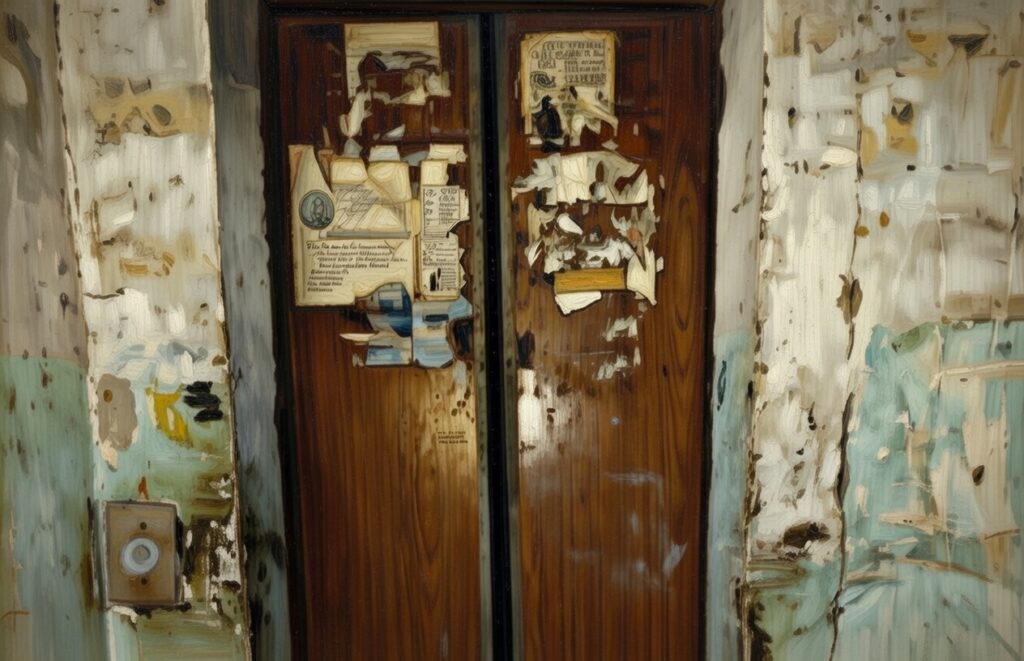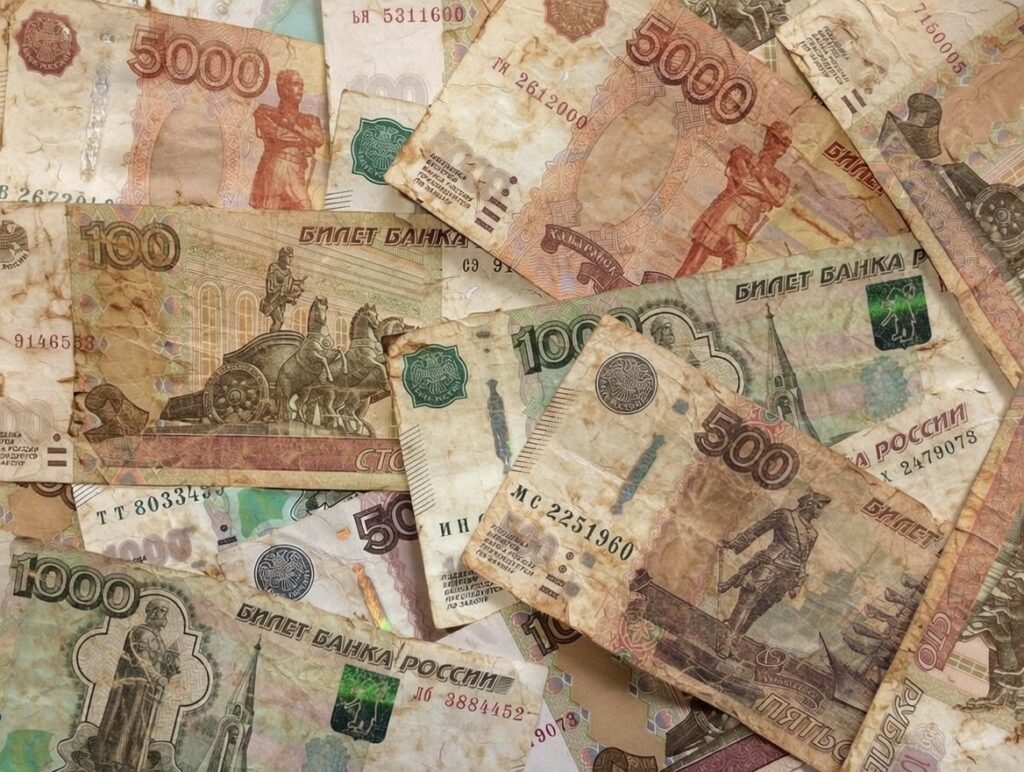The last week has brought new evidence that while Moscow is invested in chipping away at the sanctions regime, demanding relief for agricultural conduit Rossel’khozbank, sanctions relief is secondary to dragging out ceasefire negotiations to further weaken Ukraine. The latest proposal from Trump’s team to force Kyiv to its knees, acquiring the country’s mineral wealth and energy assets without security guarantees, is equal parts Kabuki theater. Putin’s acknowledgement of Trump’s pretensions of annexing Greenland, suggesting it was similar to Andrew Johnson’s acquisition of Alaska following the Civil War, was a cutting comparison, given Johnson survived impeachment by just one vote and undermined post-war Reconstruction. Theoretically, this might be explained by confidence that there’s little to fear from economic blowback, given the ruble’s gains this year. The Bank of Russia notes public surveys in 2024 showed the highest level of optimism about their material situation since 2013, and even the poorest 10% of households have seen their nominal income increase 33% since 2022. As always, the story the data tells is more complicated.
2013 is an interesting benchmark because it marked the end of a huge consumer borrowing boom following the Global Financial Crisis, driven by urban Russians borrowing to maintain their living standards. The recovery from 2008−2009 was weak, stimulus was poorly designed, and retail sales had posted three years of contraction when adjusting for inflation. Just today, Putin claimed, «Everything’s stable, in the sphere of government finances and the economy at large. But there’s always not enough money [for things.]» It is an absurd statement, given the capacity the state has shown to spend on the war could have been directed towards development at any time since the mid-2000s.
Claims of 4.1% GDP growth in 2024 are hard to square with what businesses face. If productivity is to keep growing strongly, the state needs to improve its capacity to meet business needs, especially in areas where regulations matter in avoiding accidents or worker discontent. The Russian Union of Industrialists and Entrepreneurs sent the government a letter noting the lack of certification bodies, certified scientists, and testing laboratories for protective gear needed in medicine and industrial settings. While it’s significant that the SJ-100, a Rostec project for an all-Russian narrowbody civilian airliner, took its maiden flight and may enter serial production next year, and Chemezov brags that Russia’s industrial production is growing faster than abroad, there’s an inherent tension, given the government is now focused on messaging the role of domestic demand in driving economic growth.
If investment into new production over the last two years has primarily been military, military-adjacent, or, in cases like medication, a substitution for imports, then implicitly, government demand is really the key driver of growth, creating incomes and investment that filter through the consumer economy. Even as the ruble has strengthened, there are clear signs demand for key consumer goods like cars is weakening. Yet demand for housing in some areas shows signs of strength from households’ earnings on deposits they’re now withdrawing, but these would largely be already well-off Russians accessing policy support for home purchases because they put down at least 50% of the property’s value as a downpayment. Small businesses keep growing at a slightly weakening rate. Food retailers continue to see strong earnings and investment growth, but if they’re maintaining their profit margins over the last few years, clearly prices have risen faster than official aggregate inflation.
One of the smaller, yet meaningful, sources of small business growth has been cosmetics, often substituting or augmenting treatments that were imported. Over half the injection treatments used by cosmetologists in Russia are illegal. This is a great example of the trouble with nominal figures. Yes, you can say that on paper, the average person is earning a lot more than they were a few years ago. But you can’t reasonably claim official inflation statistics make sense or that substitutes for imports or businesses exploiting the surge of money in circulation are delivering services of sufficient quality. RZhD is forecasting that rail deliveries on the national rail network may fall 5.5% for Jan.-March this year. There is no world in which a decline at that rate is not reflected by a decline in demand for consumer goods and the prioritization of exports to China and Asia or the military. If domestic demand is driving growth, the primary means of moving goods around should be posting growth. An alternative explanation is that more money is going into services, which would also make inflation stickier since the cost of services is more heavily affected by wages.
The Bank of Russia is worried that the furious pace of wage growth since late 2022 may encourage consumers to continue to borrow past the point it makes sense to. This «overheating» extends the period of time it takes to normalize inflation and introduces more financial risk in the event of a deceleration of growth and inflation. The irony is that the more inflation falls as growth slows, the more costly it becomes for households to service the debts they have. A point often made by Russian economists observing the situation from abroad is that the «real» rate of interest — an often unhelpful measure of the gap between the rate of interest and inflation — is still fine for households above 20% because of how high inflation is. The longer that situation lasts, however, the more embedded those inflation expectations become in driving consumer behavior. Consensus is that official inflation will be 7.1% for 2025. A lower figure only makes sense if growth and consumer demand are slowing.
Policymakers might consider that external deflation is now a greater risk systemically for the Russian economy. If the US drives itself into a punishing recession out of sheer stupidity, the effect will ripple immediately across energy markets and the trade of consumer goods. The US is still the consumer of last resort that absorbs the trade surplus of countries like China, which is septupling down on the energy transition as a driver of growth. Even if inflation and interest rates in Russia come down, the budget will be under more pressure at a lower oil price, and Russians whose wages aren’t growing as strongly anymore and already hold significant debts can no longer rely on inflation to eat away at what they owe over time.
Nabiullina is warning the presidential administration that a low-price environment may be here to stay, and the US and OPEC could flood the market, creating a repeat of the 1980s scenario Russia’s paranoiac hawks blame on Reagan and the CIA. Until financial sanctions are lifted, MinFin must restrain the size of the deficit to prevent more inflation. The more the ruble strengthens from belief in sanctions relief, the more it reduces the relative budget revenues earned from oil, gas, and other key revenue streams tied to exports invoiced in foreign currencies (often yuan now). It’s a terrible position to be in. No matter what is done, there’s not enough labor to mount further expansions of production comfortably. Inflation will be hard to quell as a result. Pulling off the heist of the century with help from a friendly administration in Washington requires a plan for the day after tomorrow. The regime has yet to prove it can think and plan that far ahead.










